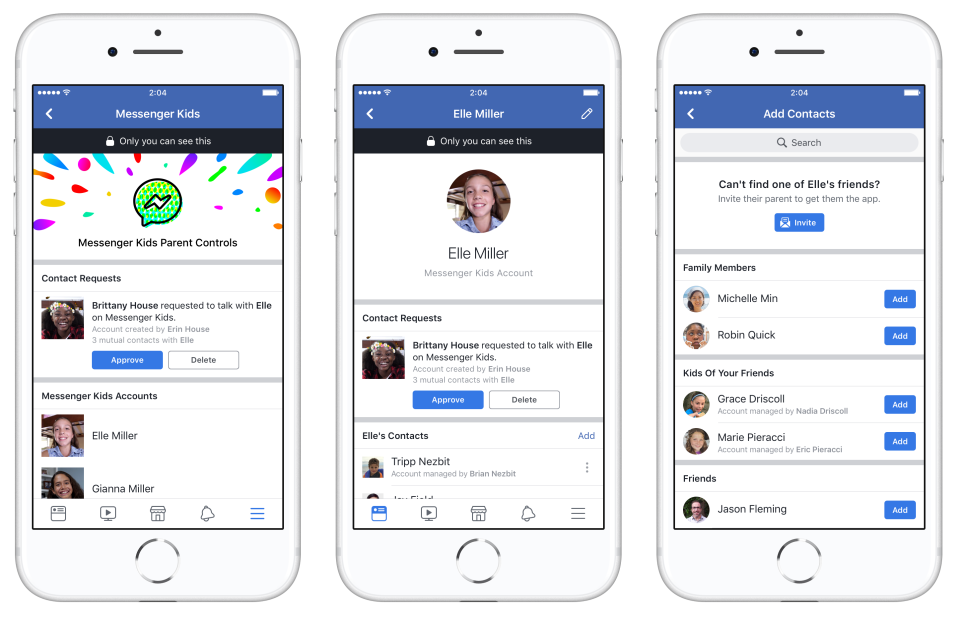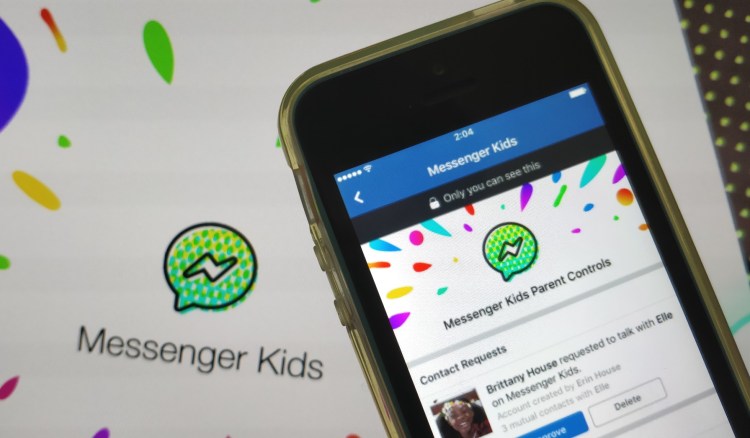With more than one billion users, Facebook’s Messenger app needs little introduction. But the technology giant today announced a new version of the service that could bump its active user base up considerably.
Messenger Kids is launching in preview today for iPhone and iPad users in the U.S. and will be targeting kids aged 6 to 12 with a child-friendly alternative to the main Messenger app. Parents have to use their own Facebook credentials to authenticate a device for use with the new Messenger Kids app, and parents have full and final say over who the kid is able to connect with through Messenger. These controls are accessible through the main Facebook app.
Facebook said that the app was designed in conjunction with parents and safety organizations and is compliant with the Children’s Online Privacy and Protection Act (COPPA).

Above: Messenger Kids
It’s worth noting here that Facebook itself remains closed to those under 13 years of age. And Facebook indicated that it won’t use Messenger Kids to monetize children directly — there won’t be any ads or in-app purchases. So what, exactly, is Facebook’s motive for opening things to younger children? That’s simple really: It’s all about getting kids on board earlier so that they are “Facebook-aware” by the time they hit 13.
June 5th: The AI Audit in NYC
Join us next week in NYC to engage with top executive leaders, delving into strategies for auditing AI models to ensure fairness, optimal performance, and ethical compliance across diverse organizations. Secure your attendance for this exclusive invite-only event.
This follows a trend we’ve seen elsewhere in the technology realm, with companies looking for ways to hook children into their respective ecosystems as early as possible. Last month, for example, Google announced an update to the YouTube Kids app, one that gives parents more tools to customize the app with individual profiles suited to specific age groups and unique passcodes for each child in a family. This followed the launch of the Family Link app that allows parents to control their kids’ devices remotely.
In October, Amazon announced that it would allow teenagers (13 to 17 years old) to shop using separate logins that are attached to their parents’ accounts. And earlier in the year, the company introduced new tools to help parents stay better informed about what their kids are doing within FreeTime, its kid-friendly content service with a special whitelisted selection of games, apps, and books.
To target kids, you need to target the parents — and that’s what Facebook is doing now with Messenger. It wants kids on board as early as possible, and it knows that some parents are eager to keep in touch with their kids through a safe environment that they can control. But it’s not entirely clear how many parents are keen to push their kids inside the Facebook machine at just six years of age.
For families that prefer an Android flavor of Messenger, fret not, there will be a version arriving on Google Play and the Amazon App Store “in the coming months.”

